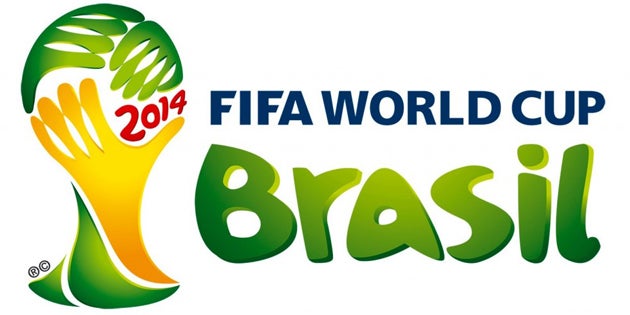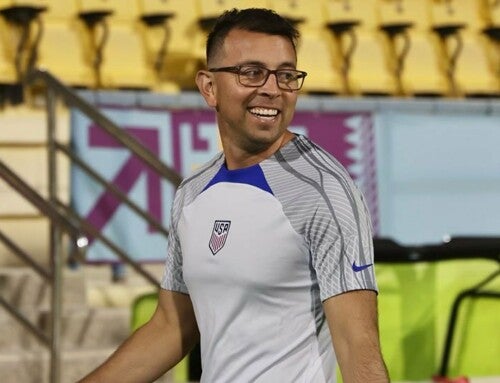With the FIFA World Cup set to kick-off in Brazil on June 12, 2014, two of the College of Charleston’s own resident soccer experts – women’s soccer coach Christian Michner and men’s assistant soccer coach Danny Irizarry – offer a few reasons why the tournament is worth watching.
1. The world loves soccer.
 Half of the world’s population tuned in to watch at least one match during the 2010 World Cup in South Africa, according to FIFA. Can 3.5 billion people be wrong?
Half of the world’s population tuned in to watch at least one match during the 2010 World Cup in South Africa, according to FIFA. Can 3.5 billion people be wrong?
Soccer remains a global fascination with hundreds of millions of people playing in and watching professional leagues in virtually every part of the world.
Still, a recent Washington Post–ABC News poll found that only 28 percent of Americans are fans of professional soccer and that nearly half of all Americans think the sport is boring.
2. The game rules and tournament format are simple.
If you’re really green when it comes to soccer, Michner explains the game in its most basic terms: “You play keep-away from the other team and try and score in their goal. No hands, except for goalkeepers. I’m not even going to try to explain offside!”
But if you really want to understand the offside rule, click here for a good explanation.
The tournament’s 32 teams, each representing a different country, are divided into eight groups of four. Each team plays the other three teams in its group once. Points are awarded to teams in this group stage as follows: Win=3, Tie=1, Loss=0
The top two teams from each group advance to the second round, also known as the knock-out round. In this single-elimination round, the first place teams play the second place teams. Losers go home. Winners advance.
3. There’s a South Carolina connection.
U.S. team captain Clint Dempsey played collegiate soccer at Furman University in Greenville, S.C. He was a health and exercise science major and a midfielder for the Paladins from 2001 to 2003.
This is Dempsey’s third World Cup.
4. The U.S. team has a chance of advancing.
The U.S. is playing in the so-called “Group of Death,” which includes legitimate contenders Ghana, Portugal and Germany.
Irizarry puts the odds of the U.S. advancing to the knock-out round at 25 percent.
Michner is more optimistic about America’s chances, putting the odds at 35 to 40 percent. “We are good enough to see ourselves into the quarterfinals, but also inexperienced enough to lose all three matches!”
The U.S. defeated Ghana on June 16 and will face Portugal on June 22.
5. There are many exciting teams and players to follow.
Some of the best teams to watch according to Irizarry and Michner are Brazil, Belgium, U.S.A., Ghana, Portugal, Argentina, Germany, Spain and Uruguay.
Some exciting players to look out for include Lionel Messi (Argentina), Cristiano Ronaldo (Portugal), Neymar da Silva Santos Jr. (Brazil), Clint Dempsey (USA), Luis Suarez (Uruguay), Alexis Sanchez (Chile), Arjen Robben (Netherlands), Andres Iniesta (Spain), Mario Balotelli (Italy), Michael Bradley (USA), and Wayne Rooney (England).
RELATED: Read about the men’s soccer team’s recent trip to Brazil.
6. It’s easy to tune in or live stream the matches.
All 64 matches will be broadcast live on ESPN, ESPN2 or ABC.
And every match will be streamed online at ESPN3.com or on mobile devices via the WatchESPN or WatchABC apps.
“Nothing better than sitting down to watch a game with some chips and dip,” Michner says. “Or you might want to head to a restaurant or bar to watch a game. In Mt. Pleasant, My Father’s Moustache is a great spot!”





